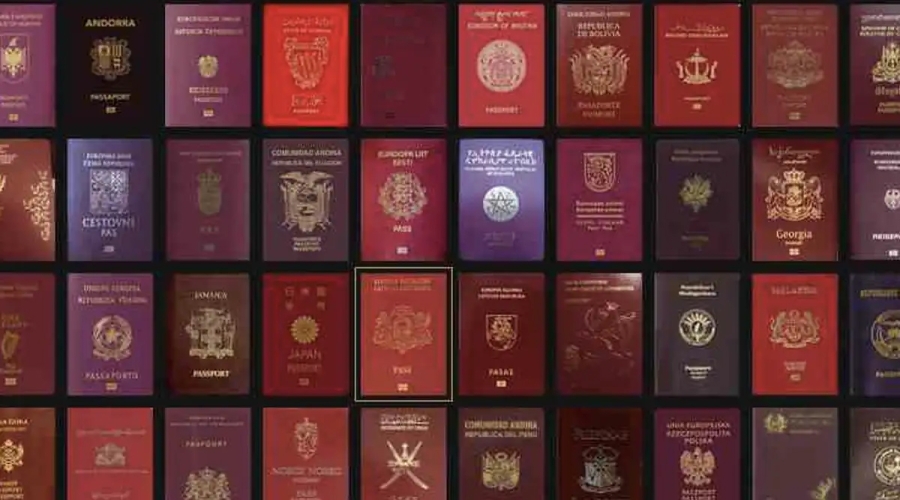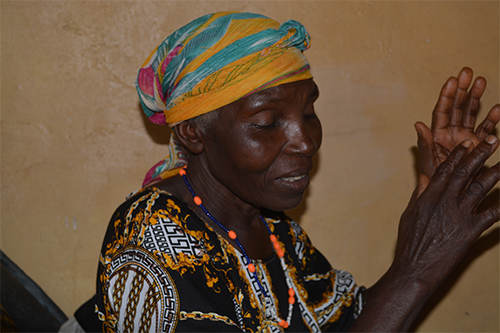The Quest for a Single African Passport by 2030

The recent introduction of a common biometric passport by Mali, Niger, and Burkina Faso under the Alliance of Sahel States offers a roadmap for Africa's pursuit of a single continental passport by 2030. Here is why this must happen!
In an inspiring move that sets a bold precedent for Africa, Mali, Niger, and Burkina Faso recently announced the launch of a common biometric passport under the banner of the Alliance of Sahel States (AES). This milestone, coming after their departure from the Economic Community of West African States (ECOWAS), represents their commitment to enhancing cooperation, security, and mobility within their borders. As Africa grapples with the complex challenges of political instability, insecurity, and poverty, this tripartite agreement serves as a model for what the entire continent can achieve – a single African passport by 2030.
The Mali-Niger-Burkina Faso Alliance: A Case Study in Pan-African Cooperation
On Sunday, 15 September 2024, Mali's leader Colonel Assimi Goita announced the imminent launch of a new biometric passport for the AES, a bloc that the three countries established after military coups in their respective nations. This passport aims to harmonize travel documents within the alliance, facilitating seamless movement across the three countries and beyond. By creating this common passport, the alliance is taking practical steps toward strengthening regional integration, which not only enhances internal cooperation but also positions them to negotiate with international partners on more equal footing.
These nations, whose populations are plagued by instability and the threat of militant insurgencies, are using this new level of cooperation to bolster security. The shared biometric passport will improve surveillance and counterterrorism efforts, allowing for better tracking of movement within and between the three nations. It also underscores the political realignment taking place in the region, as Mali, Niger, and Burkina Faso distance themselves from the ECOWAS bloc, which they perceive as failing to address their unique security and sovereignty challenges.
The passport announcement is part of a broader effort to integrate these nations politically and economically, highlighted by their joint military force and ongoing discussions about shared governance and development initiatives. The AES has clearly stated its openness to cooperation with external partners, but it has drawn a red line around protecting the sovereignty and internal affairs of its member states. This bold move should be a wake-up call for the rest of Africa: regional cooperation can not only address localized problems but can also contribute to the continent's long-term vision of a united, free-moving Africa.
Am on a mission to awaken and empower Africa through knowledge. If you would like to support our work, you can do so through: Paypal: This email address is being protected from spambots. You need JavaScript enabled to view it. Mobile money transfer number through Worldremit or MPESA: +254795591751
Click here to see exactly what your money will do:
https://environmentalafrica.com/donate
Why Africa Needs a Single Passport by 2030
The African Union’s Agenda 2063 – Africa’s blueprint for sustainable development –identifies free movement of people as a key goal for achieving continental unity and prosperity. A single African passport, enabling visa-free travel across all African nations, has the potential to accelerate economic growth, enhance regional integration, and strengthen Africa’s global standing. The common biometric passport introduced by Mali, Niger, and Burkina Faso is a step in the right direction and offers lessons for the entire continent on how to move toward this goal.
First, the introduction of a unified passport would break down the artificial borders imposed by colonial powers that continue to limit Africa's potential. Free movement of people would enhance intra-African trade, allowing businesses and entrepreneurs to access broader markets. This would be a major boon for economies across the continent, particularly as Africa’s youthful population continues to grow and demands more employment and business opportunities.
Secondly, a single African passport could play a critical role in improving security across the continent. Just as the AES nations are using their common biometric passport to track movement and strengthen border control, a continent-wide passport system with shared databases and enhanced security features would allow African governments to better combat terrorism, trafficking, and cross-border crime. It would also improve accountability, ensuring that governments have a clear understanding of who is moving where and why, without infringing on the rights of African citizens to move freely within their own continent.
Moreover, the symbolic and political value of a single African passport cannot be overstated. It would represent a tangible step toward the realization of Pan-African ideals, including unity, solidarity, and self-reliance. Such a passport would send a powerful message to the world that Africa is no longer content to be fragmented, marginalized, or divided by the legacies of colonialism. Instead, Africa would be signaling its intent to forge its own path, with strong regional blocs like the AES providing the foundation for a more cohesive and powerful African Union.

Kenya
Learning from the Alliance of Sahel States
The AES countries – Mali, Niger, and Burkina Faso – have demonstrated that, even under challenging circumstances, political will and regional cooperation can lead to concrete outcomes. Despite battling militant insurgencies, they have come together to create a shared framework for governance, security, and mobility. Their biometric passport is more than just a document; it is a symbol of their commitment to working together for a common future.
Africa can build on this example. First, other regional blocs such as the East African Community (EAC), the Southern African Development Community (SADC), and the Central African Economic and Monetary Community (CEMAC) can start by harmonizing their travel documents and creating regional biometric passports. Once these are in place, the transition to a single African passport will be far less complicated. Second, African nations must prioritize the adoption of digital and biometric technologies to ensure that this initiative is both secure and efficient. The AES passport initiative demonstrates that it is possible to leapfrog outdated systems by embracing modern, interoperable technologies.
Lastly, African leaders must engage in sustained dialogue and cooperation to overcome the political, economic, and logistical challenges that will arise in the pursuit of a single African passport. The AES countries' determination to move forward, even after withdrawing from ECOWAS, underscores the importance of political unity in the face of opposition. If they can work together under such trying circumstances, the rest of Africa must follow suit.

Nigeria
Conclusion
The creation of a single African passport by 2030 is an achievable and necessary goal for the continent. The recent agreement between Mali, Niger, and Burkina Faso to introduce a common biometric passport sets an inspiring example for the rest of Africa. It is a reminder that regional cooperation, enhanced mobility, and unified governance are within reach. If Africa embraces this vision, the dream of a truly united continent – one in which people, goods, and ideas move freely—will no longer be just a Pan-African ideal, but a reality by 2030.
This email address is being protected from spambots. You need JavaScript enabled to view it.
I seek to awaken and empower Africa through knowledge. If you would like to invest in my work, you can do so through:
Paypal: This email address is being protected from spambots. You need JavaScript enabled to view it.
Mobile money transfer number through Worldremit or MPESA: +254795591751
Click here to see exactly what your money will do:
https://environmentalafrica.com/donate

 En
En  Fr
Fr  Ar
Ar